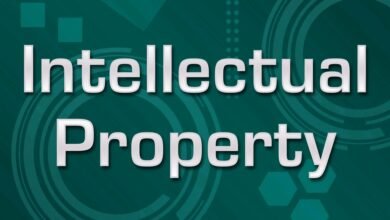The Complete Estate Planning Guide: A Roadmap to Peace of Mind

Estate planning is a crucial process that ensures your assets are distributed according to your wishes and your loved ones are taken care of after you’re gone. It involves making decisions about your finances, properties, and healthcare directives, among other things. In this comprehensive guide, we’ll explore the various aspects of estate planning and provide you with a roadmap to achieve peace of mind for yourself and your family.
Contents
Essential Components of Estate Planning
Will and Testament
A will is a legal document that outlines how you want your assets to be distributed after your death. It also allows you to appoint guardians for minor children and specify any funeral arrangements.
Power of Attorney
A power of attorney grants someone else the authority to make financial or medical decisions on your behalf if you become incapacitated. It’s essential to choose a trusted individual for this role.
Healthcare Directives
Healthcare directives, such as a living will or healthcare power of attorney, specify your preferences for medical treatment if you are unable to communicate your wishes. This ensures your healthcare decisions align with your values and beliefs.
Trusts
A trust is a legal arrangement where a trustee holds assets on behalf of beneficiaries. Trusts can help you avoid probate, minimize estate taxes, and provide ongoing financial support for loved ones.
Beneficiary Designations
Designating beneficiaries for assets like life insurance policies, retirement accounts, and bank accounts ensures these assets pass directly to the intended recipients, bypassing the probate process.
Guardianship Arrangements
For parents of minor children, appointing guardians in your estate plan ensures there is a plan in place for their care and upbringing if something happens to you.
The Process of Estate Planning

Assessing Your Assets and Liabilities
Start by taking inventory of your assets, including real estate, investments, retirement accounts, and personal belongings. Also, consider your debts and liabilities.
Setting Clear Objectives and Goals
Define your objectives for estate planning, such as providing for your family’s financial security, minimizing taxes, and preserving your legacy. These goals will guide the estate planning process.
Choosing Appropriate Estate Planning Tools
Based on your objectives, work with an estate planning attorney to choose the right tools, such as wills, trusts, and powers of attorney, to achieve your goals.
Drafting Legal Documents
Once you’ve decided on your estate planning tools, work with your attorney to draft the necessary legal documents, ensuring they accurately reflect your wishes and comply with state laws.
Reviewing and Updating the Plan Regularly
Estate planning is not a one-time event. It’s essential to review and update your plan regularly, especially after significant life events like marriage, divorce, the birth of a child, or changes in financial circumstances.
Common Estate Planning Mistakes to Avoid
Procrastination
Many people put off estate planning because they don’t want to confront their mortality. However, procrastination can lead to unintended consequences and unnecessary stress for your loved ones.
Failure to Update Beneficiaries
Failing to update beneficiary designations on accounts like life insurance policies and retirement accounts can result in assets passing to unintended beneficiaries or being tied up in probate.
Overlooking Digital Assets
In today’s digital age, it’s essential to consider your digital assets, such as online accounts, social media profiles, and cryptocurrencies, in your estate plan.
Not Considering Tax Implications
Estate planning involves complex tax considerations, including estate taxes, gift taxes, and income taxes. Failing to consider these implications can result in a higher tax burden for your heirs.
Ignoring the Need for Professional Assistance
While DIY estate planning tools may seem appealing, they often overlook important legal nuances and can lead to costly mistakes. It’s crucial to work with experienced professionals, such as estate planning attorneys and financial advisors, to create a comprehensive plan.
Read More: Planning for Tomorrow: Key Considerations in Estate Management
Benefits of Estate Planning

Ensuring Assets Are Distributed According to Your Wishes
Estate planning allows you to specify how you want your assets to be distributed, ensuring your wishes are carried out after your death.
Minimizing Estate Taxes and Expenses
Proper estate planning can help minimize estate taxes and administrative expenses, preserving more of your estate for your heirs.
Providing for Loved Ones’ Financial Security
Estate planning allows you to provide financial security for your loved ones, including spouses, children, and other dependents, ensuring they are taken care of after you’re gone.
Avoiding Family Disputes and Legal Challenges
A well-crafted estate plan can help avoid family conflicts and legal challenges by clearly outlining your intentions and wishes for your estate.
Estate Planning for Different Life Stages
Young Adults
Even young adults should consider basic estate planning tools like wills and healthcare directives to ensure their wishes are known in the event of incapacity or death.
Married Couples with Children
Married couples with children should prioritize guardianship arrangements in their estate plan to ensure there is a plan in place for their children’s care and upbringing.
Retirees and Seniors
Retirees and seniors should review and update their estate plans regularly to reflect changes in their financial circumstances, health, and family dynamics.
Business Owners
Business owners should consider succession planning as part of their estate plan to ensure a smooth transition of their business interests to the next generation of new owners.
Choosing the Right Professionals for Estate Planning
Estate Planning Attorney
An estate planning attorney can help you navigate complex legal issues and ensure your estate plan complies with state laws.
Financial Advisor
A financial advisor can help you assess your financial situation and recommend appropriate estate planning strategies to achieve your goals.
Accountant or Tax Planner
An accountant or tax planner can provide valuable insights into the tax implications of your estate plan and recommend strategies to minimize taxes.
Future Trends in Estate Planning
Incorporating Digital Assets
As more of our lives move online, estate planning will increasingly need to address digital assets like cryptocurrencies, social media accounts, and digital files.
Addressing International Considerations
As individuals become more globally mobile, estate planning will need to consider international tax laws and jurisdictional issues.
Utilizing Technology for Document Management
Advancements in technology will streamline the estate planning process, making it easier to create, manage, and update legal documents.
Read More: Estate Planning Essentials: Building a Solid Financial Foundation
Conclusion
Estate planning is a vital process that ensures your assets are distributed according to your wishes and provides peace of mind for you and your loved ones. By understanding the essential components of estate planning, avoiding common mistakes, and seeking professional assistance, you can create a comprehensive plan that protects your legacy and provides for your family’s future.
FAQs
What is the most crucial document in estate planning?
The most crucial document in estate planning is a will, which outlines how you want your assets to be distributed after your death.
How often should I update my estate plan?
You should review and update your estate plan regularly, especially after significant life events like marriage, divorce, the birth of a child, or changes in financial circumstances.
Can I create my estate plan without professional help?
While DIY estate planning tools are available, it’s advisable to seek professional assistance from an estate planning attorney and financial advisor to ensure your plan is comprehensive and legally sound.
Are there any tax benefits associated with estate planning?
Yes, proper estate planning can help minimize estate taxes and administrative expenses, preserving more of your estate for your heirs.
What happens if I don’t have an estate plan?
Without an estate plan, your assets will be distributed according to state intestacy laws, which may not align with your wishes. This can lead to family disputes, legal challenges, and unnecessary expenses.




